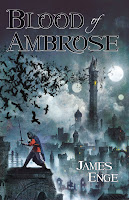Short short stories
Over at Boing-Boing they’ve just called wraps on their ‘Undying love in ?150 characters’ competition (the challenge was to write a love poem in no more than 150 characters: “this is a contest where speed and cleverness beat diligence … remember that spaces and punctuation count”). The results are definitely worth checking out, particularly with Valentine’s Day just around the corner.
Reading it put me in mind of conversations I have had with publishers and editors about the increasing plumpness of certain sort of contemporary Fantasy and SF. It is, I suppose, easy to get caught in a feedback loop whereby readers’ preferences for Fantasy novels in 1000 (or 3000) page chunks and the desire of publishers (and writers) to give readers what they want reinforce one another, and before long the shelves are stocked with books of baleinic proportions. Publishers I’ve spoken to take the view that a book should be as long as its story needs, and that most stories don’t actually need 1000 pages. Certainly, one of my favourite Pyr titles from last year, Theodore Judson’s Martian General’s Daughter, generates an epic heft without butting its head on the 300 page ceiling. Some great novels are very long, of course; but the danger is that great length becomes a kind of end in itself, or even a fetish.
Ernest Hemingway once claimed, famously, that the best story he wrote was only six words long: “For sale: baby shoes, never worn.” A few years ago The Guardian ran a feature in which a bunch of contemporary writers wrote their own six-words stories. In the spirit of putting my money where my mouth is, and with a view to bringing some original fiction to Pyr-o-mania, I post, below, six six-word SF-y stories of my own. I invite you to add your own six-word stories in comments. And if we get 10,000 of them, I promise to endeavour to persuade Lou to publish them all in a short-short-short fiction anthology.
Your eyes are lovely. With wasabi.
‘The sky’s falling!’ ‘Don’t be stu—’
One of these words is poisoned.
A headless man? How last-century!
The one law of robotics. Kill!
The French for six is cease.
Short short stories Read More »





